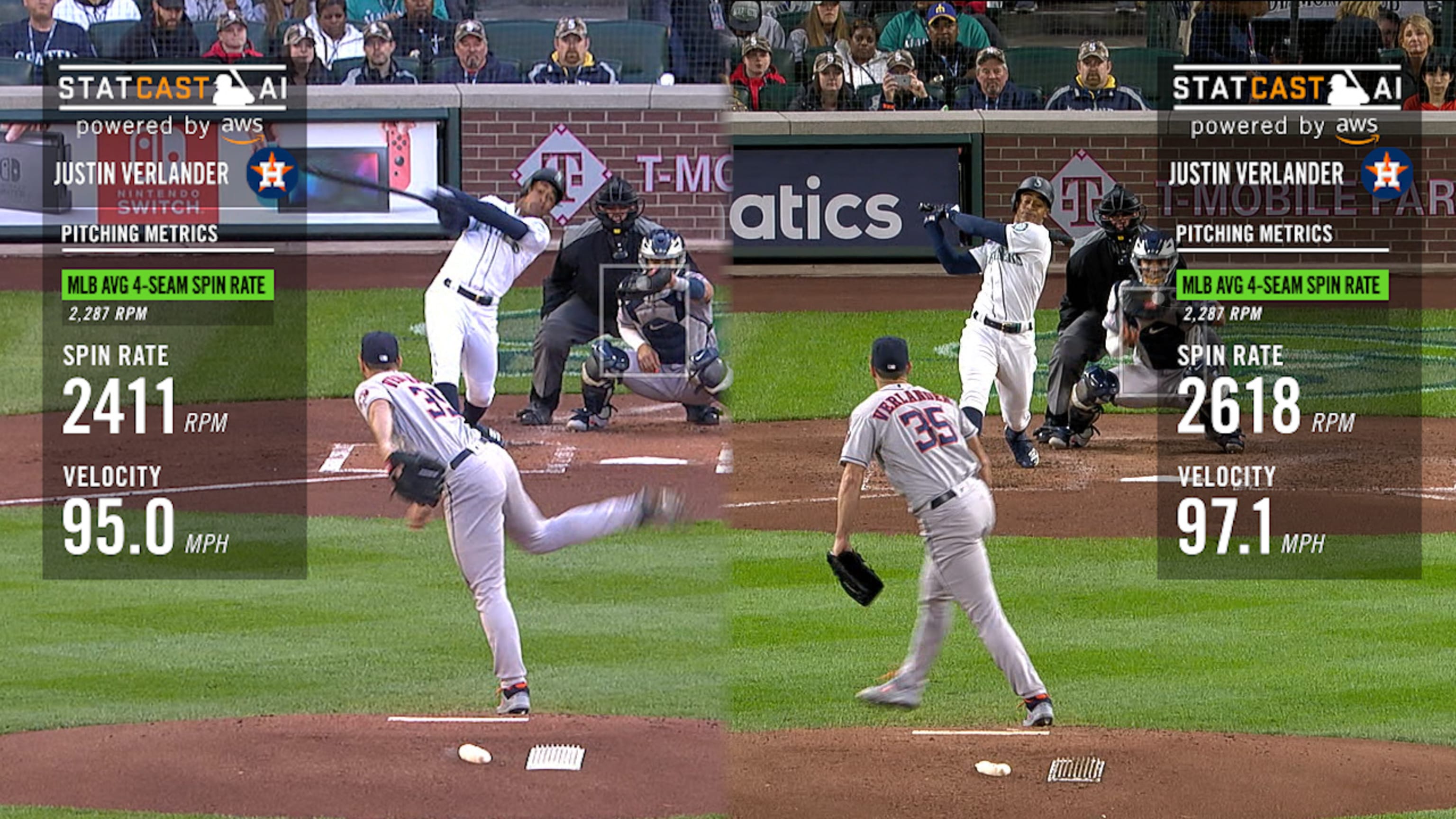A baseball game typically involves approximately 300 to 350 pitches thrown by both teams. Here is a concise and SEO-friendly introduction to your question: Baseball is a game loved by millions around the world, and the number of pitches thrown in a game is a fascinating aspect to explore.
While there are various factors at play, such as the teams involved, the competition level, and the playing style, an average game generally sees around 300 to 350 pitches being thrown. Understanding the importance and magnitude of this number can provide insight into the physical demands of the sport and the strategic decisions made by players and coaches.
We will delve deeper into the world of pitches in a baseball game, shedding light on the dynamics and significance of these throws. Let’s find out what makes the pitch count such a crucial statistic in this thrilling sport.
Factors Affecting The Number Of Pitches
The number of pitches thrown in a baseball game is influenced by various factors such as the pitcher’s skill, the game situation, the number of batters faced, and the pitcher’s pitch count. These factors play a crucial role in determining the overall pitch count in a game.
Factors Affecting the Number of Pitches Pitchers and baseball enthusiasts often wonder how many pitches are thrown in a baseball game. The number of pitches can vary from game to game, and several factors contribute to this variation. Understanding these factors can provide valuable insights into the dynamics of a baseball game. In this blog post, we will delve into three key factors that impact the number of pitches thrown: Pitching Strategy, Batter’s Approach, and Umpire’s Strike Zone.Pitching Strategy
Pitching strategy plays a crucial role in determining the number of pitches thrown in a baseball game. Coaches and pitchers strategically plan their approach based on the team they are facing, the strengths and weaknesses of their own pitchers, and the game situation. Pitchers may choose to throw more breaking balls or off-speed pitches to keep the batters off balance, which often leads to longer at-bats and more pitches. Conversely, a pitcher with a dominant fastball may aim for quick outs, resulting in a lower pitch count. The pitching strategy employed can significantly impact the total number of pitches in a game.Batter’s Approach
The approach of the batter also influences the pitch count in a baseball game. Batters have different styles and strategies when stepping up to the plate. Some batters are patient and selective, working the count in their favor by fouling off pitches or taking walks. Others may be aggressive and swing at early pitches, hoping to make solid contact. A patient batter who forces the pitcher to throw multiple pitches in an at-bat will naturally contribute to a higher pitch count. Conversely, a batter who swings early in the count or chases pitches out of the strike zone may result in a lower pitch count.Umpire’s Strike Zone
The strike zone, as determined by the home plate umpire, also plays a role in the number of pitches thrown in a baseball game. The umpire’s interpretation of the strike zone can vary from game to game, affecting how pitchers and batters adjust their approaches. If the strike zone is generous, pitchers may challenge batters with more pitches in the zone, leading to a higher pitch count. Conversely, if the strike zone is tight, pitchers may need to be more precise, potentially resulting in more pitches outside of the zone or walks. The umpire’s strike zone has a direct impact on the pitch count throughout the game. Understanding the factors that affect the number of pitches thrown in a baseball game provides valuable insights into the dynamics of the sport. Pitching strategy, batter’s approach, and the umpire’s strike zone all contribute to the pitch count. By considering these factors, both players and fans can gain a deeper understanding of the game and appreciate the intricacies involved in every pitch.
Credit: www.littleleague.org
Average Number Of Pitches Per Game
Baseball games typically involve an average of 150-200 pitches being thrown by pitchers throughout the game. The number of pitches can vary depending on factors like gameplay, pitcher performance, and game strategy.
Pitch Count Statistics
When it comes to evaluating the performance of a pitcher in baseball, one key stat that stands out is the pitch count. The pitch count refers to the number of pitches thrown by a pitcher in a game. Understanding the average number of pitches per game can give us insights into the endurance and effectiveness of pitchers.
On average, a baseball game sees around 290 pitches thrown by both teams combined. However, this number can vary depending on the teams, the pitchers, and other factors that come into play during the game.
Variations In Pitch Counts
The pitch count can vary significantly from game to game. There are several factors that contribute to this variation:
- Starting Pitchers: The number of pitches thrown by the starting pitchers tends to be higher compared to relief pitchers. Starting pitchers typically have more time to settle into the game, resulting in a higher pitch count.
- Batting Styles: The approach of the batters can also impact the pitch count. Aggressive batters who swing early in the count may result in a lower pitch count, while patient batters who work deep into the count can drive up the number of pitches thrown.
- Game Situation: The scoreline and game situation can also influence the pitch count. In close games where every pitch counts, pitchers may be more cautious and take their time with each delivery, leading to a higher pitch count.
Understanding these variations in pitch counts can help teams and coaches develop strategies to optimize pitcher performance and manage their workload effectively.
Impact Of Pitch Counts On The Game
In the high-stakes world of baseball, pitch counts play a crucial role in determining the outcome of a game. Understanding the impact of pitch counts can shed light on various aspects of the game, from pitcher fatigue to game duration and the utilization of the pitching staff.
Pitcher Fatigue
Pitcher fatigue is a significant concern in baseball games. When a pitcher throws multiple pitches, their arm can become strained, increasing the risk of injury and diminishing their performance. It is essential for coaches and teams to closely monitor the pitch count of their pitchers to ensure their health and longevity throughout the season.
Research has shown that as the pitch count increases, a pitcher’s effectiveness starts to decline. The ability to locate pitches accurately and maintain consistent velocity diminishes as fatigue sets in. Consequently, it becomes more challenging for pitchers to retire batters efficiently, increasing the likelihood of allowing runs and reducing their team’s chances of winning the game.
By carefully managing a pitcher’s pitch count, coaches can maximize their performance while minimizing the risk of injury. Ensuring that pitchers receive adequate rest between outings and limiting their pitch count can help maintain their effectiveness and prolong their careers.
Game Duration
Pitch counts also have a direct impact on the duration of a baseball game. As a pitcher’s pitch count rises, more time is required for the opposing team to analyze and respond to their pitches. This can result in longer at-bats and slower overall gameplay.
Longer games can have various implications. For one, they can affect a team’s strategy in terms of bullpen management. Coaches must consider the pitch count of their pitchers and make timely decisions regarding substitutions to avoid potential burnout. Additionally, longer games can test players’ endurance and mental stamina, potentially affecting their overall performance.
From a fan’s perspective, longer games can be both thrilling and exhausting. They provide more opportunities for action and suspense but can also test fans’ patience. The duration of a baseball game impacts the overall experience for fans and can influence their level of engagement.
Pitching Staff
A team’s pitching staff is their most valuable asset. Having a well-rounded and capable pitching staff allows teams to navigate through a game effectively. Understanding pitch counts can help managers make informed decisions about when to bring in relief pitchers, sparing their starters from excessive fatigue or potential injury.
Utilizing the pitching staff strategically can also help overcome shortcomings in individual pitchers. If a starter is struggling and their pitch count is climbing, managers can turn to their bullpen earlier to maintain a competitive edge. Conversely, if a starter is performing exceptionally well with a low pitch count, they can be given the opportunity to pitch longer and potentially complete the game, minimizing reliance on relief pitchers.
In some cases, teams may even use specialized relief pitchers for specific situations, such as left-handed or right-handed batters, further highlighting the importance of understanding pitch counts and crafting a well-balanced pitching staff.
Credit: sports.yahoo.com

Credit: www.mlb.com
Frequently Asked Questions For How Many Pitches Are Thrown In A Baseball Game?
What Is The Average Number Of Pitches Thrown In A Baseball Game?
In a typical baseball game, the average number of pitches thrown by both teams combined is around 150 to 170. This number may vary depending on factors such as the pitching style, game strategy, player performance, and the length of the game.
How Many Pitches Are Thrown By A Single Pitcher In A Game?
On average, a single pitcher in a baseball game throws approximately 100 pitches. However, this number can vary depending on several factors such as the pitcher’s performance, their pitch efficiency, game situation, and the team’s strategy.
Are There Any Records For The Most Pitches Thrown In A Single Game?
Yes, there are records for the most pitches thrown in a single baseball game. The record for the most pitches thrown by a pitcher in a game stands at 287 pitches, achieved by a player in the late 1970s. This record serves as a testament to the pitcher’s endurance and ability to sustain a high pitch count.
How Does The Number Of Pitches Impact A Pitcher’s Performance?
The number of pitches thrown by a pitcher can significantly impact their performance. As the pitch count increases, fatigue sets in, which can lead to a decrease in accuracy and velocity. High pitch counts can also increase the risk of injury and impact a pitcher’s ability to go deep into the game.
Conclusion
The number of pitches thrown in a baseball game can vary depending on various factors such as the competitiveness of the game, the pitching strategy employed by the teams, and the effectiveness of the pitchers. While there is no fixed number, it is important to note that every pitch counts and can have a significant impact on the outcome of the game.
So, next time you watch a baseball game, pay attention to the pitches and appreciate the skill and effort the pitchers put into each one.

General Manager & Auditorial Head.
Killian Jake is a World Sports Traveler and hobbyist sports lover. By exploring different sorts of playing modules like indoor, outdoor, and many more. As for professionalism and writing, it’s helpful to give you the right suggestions on different games and sports.





